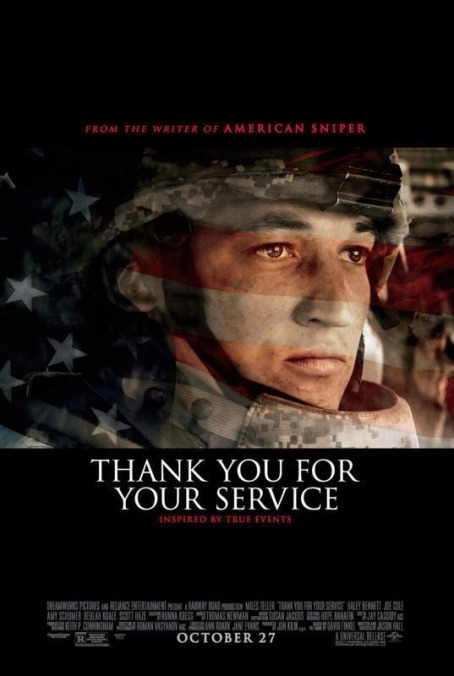The writer of American Sniper explores PTSD again in honorable, uninspired Thank You For Your Service

Many of the best parts of Clint Eastwood’s uneven American Sniper had to do with its hero’s jittery, uncomfortable reintegration into stateside life between tours of duty in Iraq. So it makes sense that Sniper screenwriter Jason Hall would make his directorial debut on Thank You For Your Service, another movie based on a nonfiction book about the Iraq war—this one taking place almost entirely on the homefront, where friends Adam Schumann (Miles Teller), Tausolo “Solo” Aieti (Beulah Koale), and Will Walter (Joe Cole) return after their time in Iraq.
The predictability of some of their troubles adjusting to life and grappling with PTSD is, in and of itself, kind of chilling. The movie does manage to find some fresher versions of soldier-at-home hell: Will, the most outwardly goofy of the trio, comes home to a ghost life—an empty house, an absent fiancée, and absolutely no idea what to do next. The other two buddies meet fates that are no less heartbreaking for their familiarity. Solo is convinced at first that the military has mostly done well by him, until he can’t adjust to civilian life. Adam, meanwhile, is lucky enough to be greeted by his wife Saskia (Haley Bennett) and their two young children, but both adults struggle with his tendency to close off and keep his traumas to himself.
One of his major traumas happens in the movie’s prologue, as Adam, under enemy fire, drags a head-shot fellow soldier down some stairs to safety, blood gushing out of his friend’s wound and streaming down Adam’s face. Remarkably, the man lives—but another friend of Adam’s, unseen and much-referred-to, doesn’t make it. The details of this incident that nag at Adam aren’t filled in until late in the film, and Hall flashing back to Iraq at that point pushes many of the characters offscreen, in service of a dramatic revelation that isn’t especially surprising.
It comes at the expense of people like the dead soldier’s wife, played by Amy Schumer, trying out a supporting role in a naturalistic drama. But while her character is prominent to the story, she’s only allowed a few actual spoken lines. It’s a shame, not because Thank You For Your Service needed to be an Amy Schumer movie, but because it might have been interesting to hear her bite into more of Hall’s dialogue, which is better and more conversational in the early going. As Thank You For Your Service zeroes in on PTSD, Adam and Solo answer various questions about their mental states, which makes the movie feel like a questionnaire itself—and then a PSA about the seriousness of its characters’ condition.
The lessons are still interrupted with sparks of mordant wit. When Saskia mentions her worry that Adam working in a tank range would put him too close to dangerous weapons given his state of mind, Adam shoots back: “You think I could kill myself with a tank? It would take some serious planning.” (“You’re very resourceful,” Saskia deadpans.) Beyond its best little moments, the movie is addressing a serious issue, and it feels awfully churlish to complain that its earnest depictions of soldiers in psychological pain isn’t novel enough, or that Koale’s performance is a little shakier than Teller’s, or that the movie doesn’t have much to say about the Iraq War in particular, or that it eventually tries to pass off a lack of resolution as an abbreviated happy ending. But these stumbling blocks do stack up, standing in the way of Hall’s best intentions.